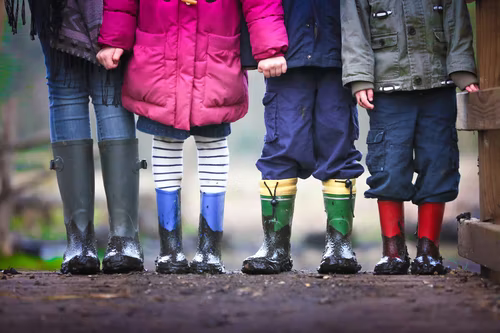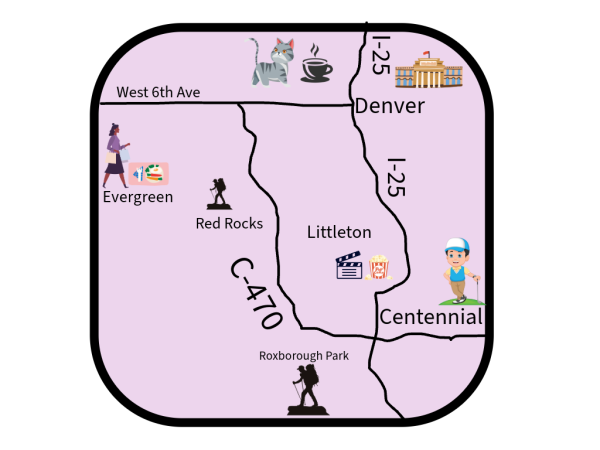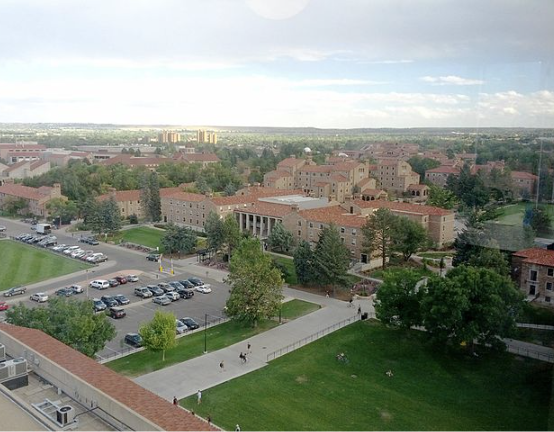What Does Our Birth Order Mean?

Have you ever wondered how your birth order affects your personality? Based on research, children that share common personality traits often have the same birth order in their families.
May 3, 2022
We’ve all heard the preconceptions about how the oldest, middle, and youngest kids will act and what their position in the family will signify for their future success and achievement. Most people have experience with how they’ve been shaped by older or younger siblings and how their parents treated them differently. But how does this really affect us, and what can we do with this information?
Alfred Adler, an Austrian physician and psychiatrist, was famous for many things that dealt with the development of a person’s personality. One of the projects Adler worked on in the 19th and 20th century was based on the effects of a child’s birth order and environment; in this time Adler described the youngest as lazy, the middle as competitive, and the oldest as power-hungry. According to The National Library of Medicine, “Adlerian Theory suggests that birth order and the number of siblings affect a child’s potential.”
According to Adler, since firstborns don’t have to share their parents in their early childhood and get less attention once a sibling arrives, Adler believed firstborns to be neurotic. He also believed the older children as obedient and conservative at times. The youngest children, according to Adler, are ambitious, whereas the middle children are well-positioned in the family and are emotionally stable.
“Frank J Sulloway is a professor of psychology and a member of the institute of Personality and Social Research at the University of California, Berkeley.” Sulloway has focused on family dynamics and the influence of birth order for several years, as he has written Born to Rebel: Birth Order, Family Dynamics, and Creative Lives. In his research he has come to many conclusions, one of them being that birth order isn’t completely responsible for a way a person behaves, environmental influences have a great impact as well.
Several studies have been conducted about how birth order impacts personality, IQ, and success. Many studies have revealed that the oldest kid in a family is more intelligent and performs better in school than the following siblings, mainly due to the fact that they were the only child for a moment and received all of their parents’ attention (birthdays, baby photos, time, clothes, toys) during early childhood. However, older children are also found to attempt to meet their parents’ expectations, tend to be more anxious about their status, and are found to be more extroverted, assertive, and dominant. In Sulloway’s research he said that studies have reported that first born children are more conscientious, which is shown through their more responsible, ambitious, and organized lifestyles.
A middle child is considered to lack the advantages compared to oldest and youngest children because of a Darwinian handicap (lacking rights of the oldest and privileges of the youngest). Middle children are more peer oriented and independent from the family, they are less likely to report having been feeling loved during their childhood. It is found that the middle child is a peacekeeper and expresses cooperation.
“I think birth-order has affected my life because I got to grow up and look up to my older sister, and now I have to do the same with my little brother,” junior Hazel Dartt said.
According to research examining the relationship between birth order and personality, younger siblings are less concerned with achieving their parents’ expectations and are more disobedient. As stated in Sulloway’s study, later born children appear to be more agreeable (tender-minded), along with being more accommodating and altruistic. Younger children are also found to be more open-minded through their more adventurous personality.
“I notice that being a younger sibling helps you develop more people and relationship skills because you have to learn and live and communicate with someone your age,” junior Kyla Adams said.

Since children watch and try to keep up with their older older siblings, children with older siblings may meet developmental milestones sooner. Children with siblings may develop positive behavioral abilities such as sympathy, taking turns, listening, cooperation, resolving conflict, and patience at a faster rate than children without siblings. According to one study, having siblings as a child can protect you against depression and low self-esteem. Kids who grow up alone, on the other hand, may be more inventive than kids growing up with siblings.
“The oldest is always supposed to be the example because the younger (kids) always need someone to look up to,” junior Manoah Collier said
In terms of physical ability, older siblings tend to be more aggressive and use intimidation against their younger siblings for power. According to Birth Order by Frank J Sulloway, younger siblings use low-power strategies like pleading, humor, social intelligence, and whining. Each child is entitled to their own type of power strategies based off of the way they grew up.
An only child lacks sibling experience and they lack a specific family niche. They tend to be less sociable because of less experience with socializing in early childhood; however, they are typically more outgoing. Overall studies demonstrated that as an only child there was a very mixed variety of personality traits. They could be more popular in school and show no difference in the amount of friendships compared to a child with siblings, or just the opposite could happen. Only children have a greater tolerance for being alone, but they are more likely to participate in extracurricular activities.
Sulloway found that there is a greater difference between children closer in age; based on this finding he concluded that the oldest and youngest children are typically less competitive towards each other compared to the first born and second born child. De-identification, the process of sibling differentiation and competition, can extend to parents, meaning if the first born relates to one parent, the second child will most likely identify with the other parent due to being different from the other sibling.
According to Does Birth Order Matter by Vanessa LoBue, she found that after having her first son she thought it would be harder to manage the love between two kids, so when she found that she was pregnant with her second child, she feared that one might feel left out. In her experience, LoBue found that even after being raised in the same environment with the same family, there were still major differences between her two sons. At the end of her observations, she brought up the importance that her own brother played in her life and how without him she also wouldn’t be who she was.
Birth order does not restrict a person to certain personality traits, the environment also has a great influence on a person’s lifestyle. How can we use these stereotypical observations to our advantage? If you happen to be a sibling and relate to some of these personality traits, try going out into the world and using your strengths and weaknesses to your advantage. You could find jobs that fit your strengths and be aware of your weaknesses to improve your life and mindset. As you move out of the family dynamic and into your own, be aware of the personality traits that naturally come to yourself and others based on the way they are raised to create a positive environment for all.












